Kobi Halperin: “I refuse to focus on trends. My whole focus is on designing for a woman and making her feel beautiful”
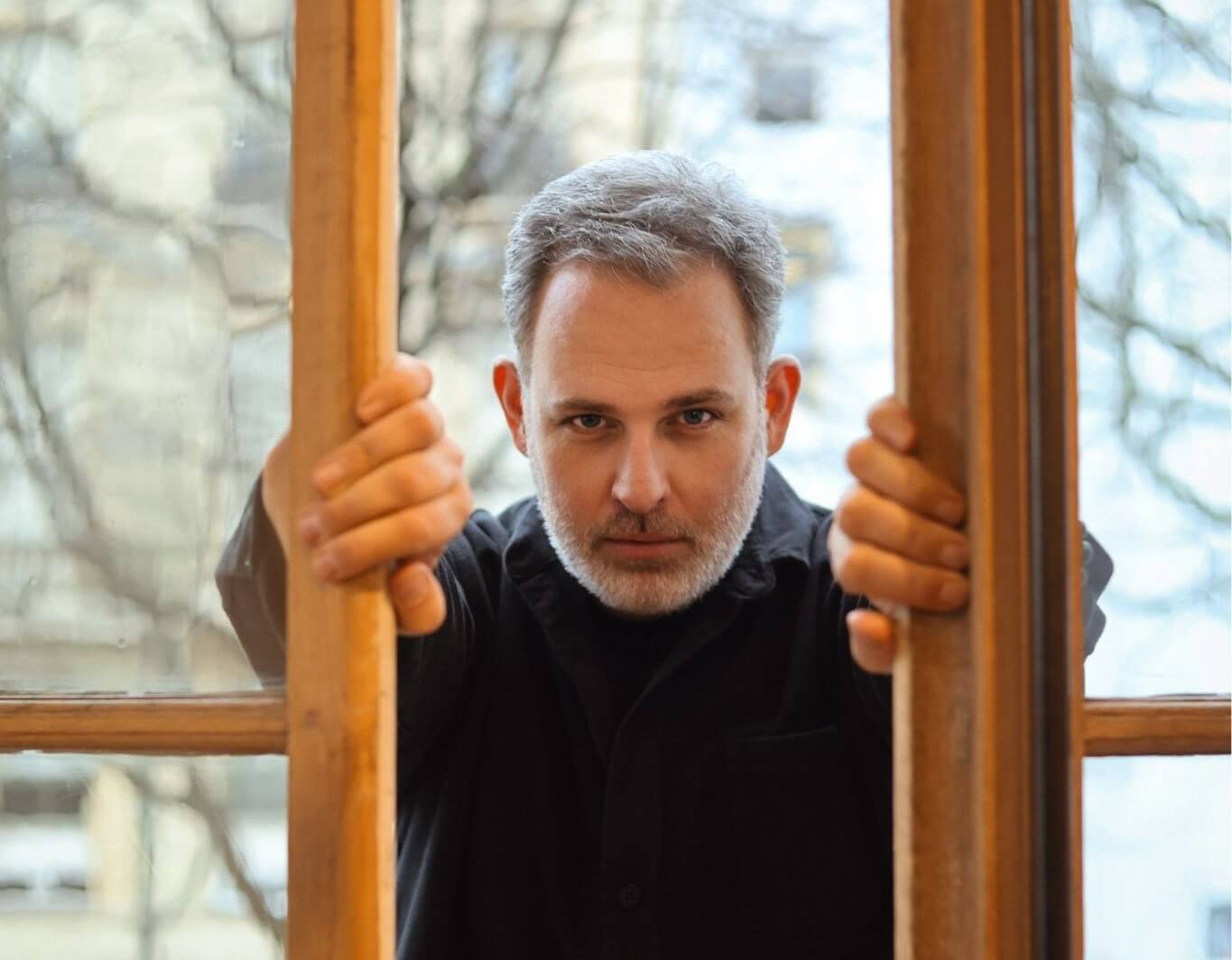
For the women who “celebrate getting dressed every day”, Kobi Halperin is known for his unique designs and his love for details.
In an exclusive interview, Global Networker asked Kobi about his creative journey, working with Elie Tahari and Kenneth Cole Productions, the success of Ungaro’s new collection at Paris Fashion Week, and genuine thoughts on his brand.
Kobi, can you share insights into the inspiration behind your designs and the unique details that set your collections apart in the fashion industry?
I consider myself very fortunate when it comes to inspiration. As a designer my creative spark is continuously ignited by the treasure trove of memories and experiences I have carried with me since childhood. I was born in Israel to East European parents, so I have always been surrounded by the beautiful tapestry of that culture from a young age.
My parents played a crucial role in shaping my appreciation for craftsmanship and the quality of handmade creations.
Growing up in Israel, a melting pot of diverse cultures, added another layer to my creative DNA. Israel’s unique position, at the crossroads of Europe and North Africa among other regions, fostered a Bohemian and exceptionally diverse cultural landscape. This foundation constantly fuels my work, allowing me to draw from a deep well of heritage, culture, and personal history.
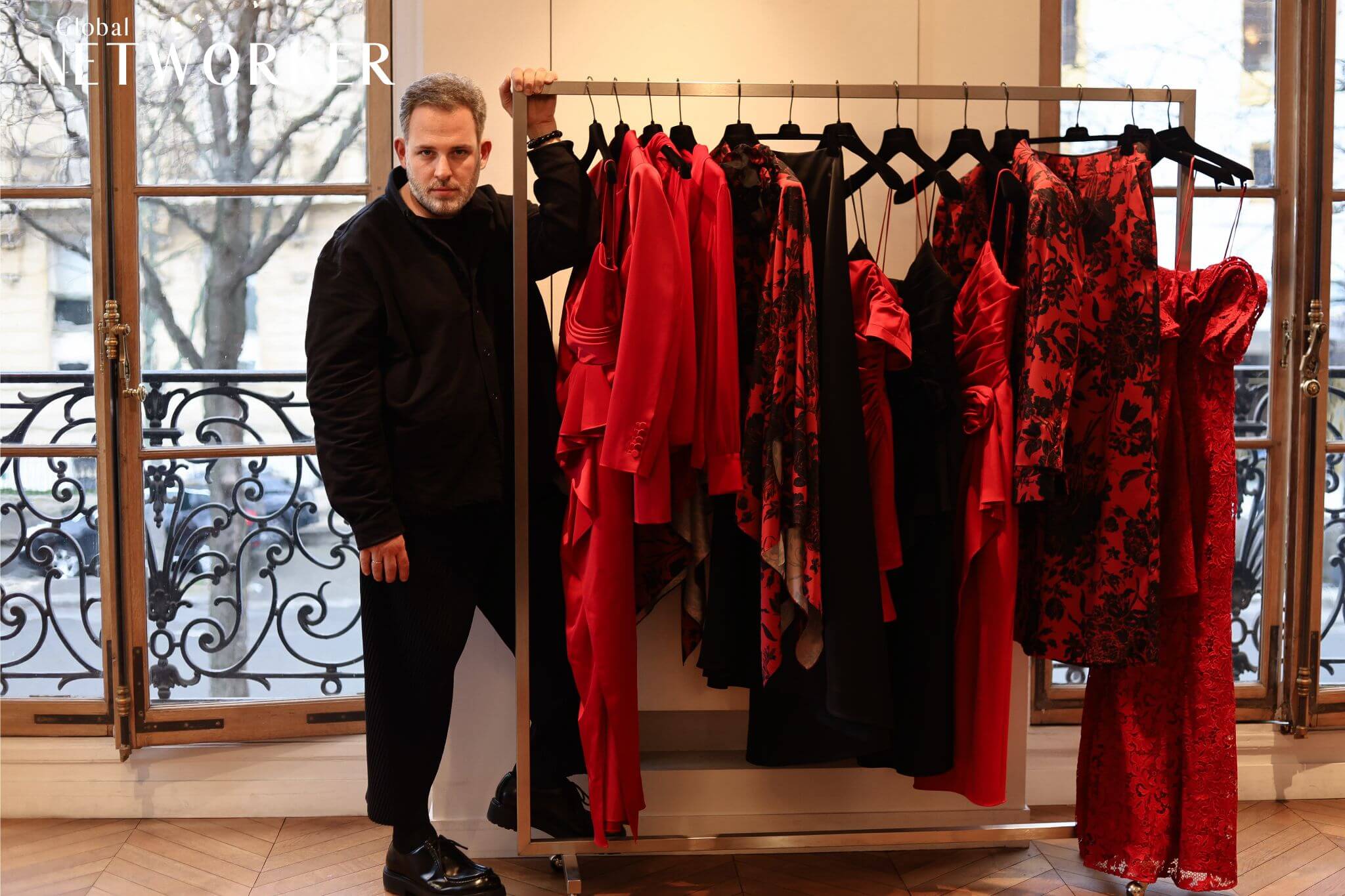
Kobi Halperin
You have studied and worked in both Israel and New York. How has this experience influenced your design aesthetic?
I was educated in Israel, and I learned fashion at Shenkar College of Textiles and Technology in Ramat Gan, Tel Aviv. However, I have never worked in Israel, so I always consider myself an American Israeli designer. I have worked in America for the last 25 years, so my professional journey has unfolded here. My upbringing in Israel infused my aesthetic with a Bohemian vibe and as I mentioned before, being raised in Israel created the blend of cultures that are integral in my brand Kobi Halperin. On the other hand, in my design for Ungaro I honor the essence of Europe and Paris and I design in the mindset of Paris as home.
As the Executive Creative Director at Elie Tahari and Kenneth Cole Productions, what valuable lessons did you learn during your cooperation with these iconic brands?
During my 13 years as a Creative Director at Elie Tahari, I grew passionate about the business aspect of fashion, exploring the intricacies of developing standout designs. My experience at Kenneth Cole productions further broadened my perspective by immersing me in more of the marketing strategies. Working with Kenneth Cole, who is a marketing visionary, showed me how to connect with the idea of what the brand stands for and the importance of brand identity and marketing. So these experiences gave me the confidence to know what to do and in many cases what not to do. In my opinion, it’s always an amazing opportunity to learn from other people and allow yourself to make mistakes. And when you’re starting your own brand — to try to avoid these mistakes.
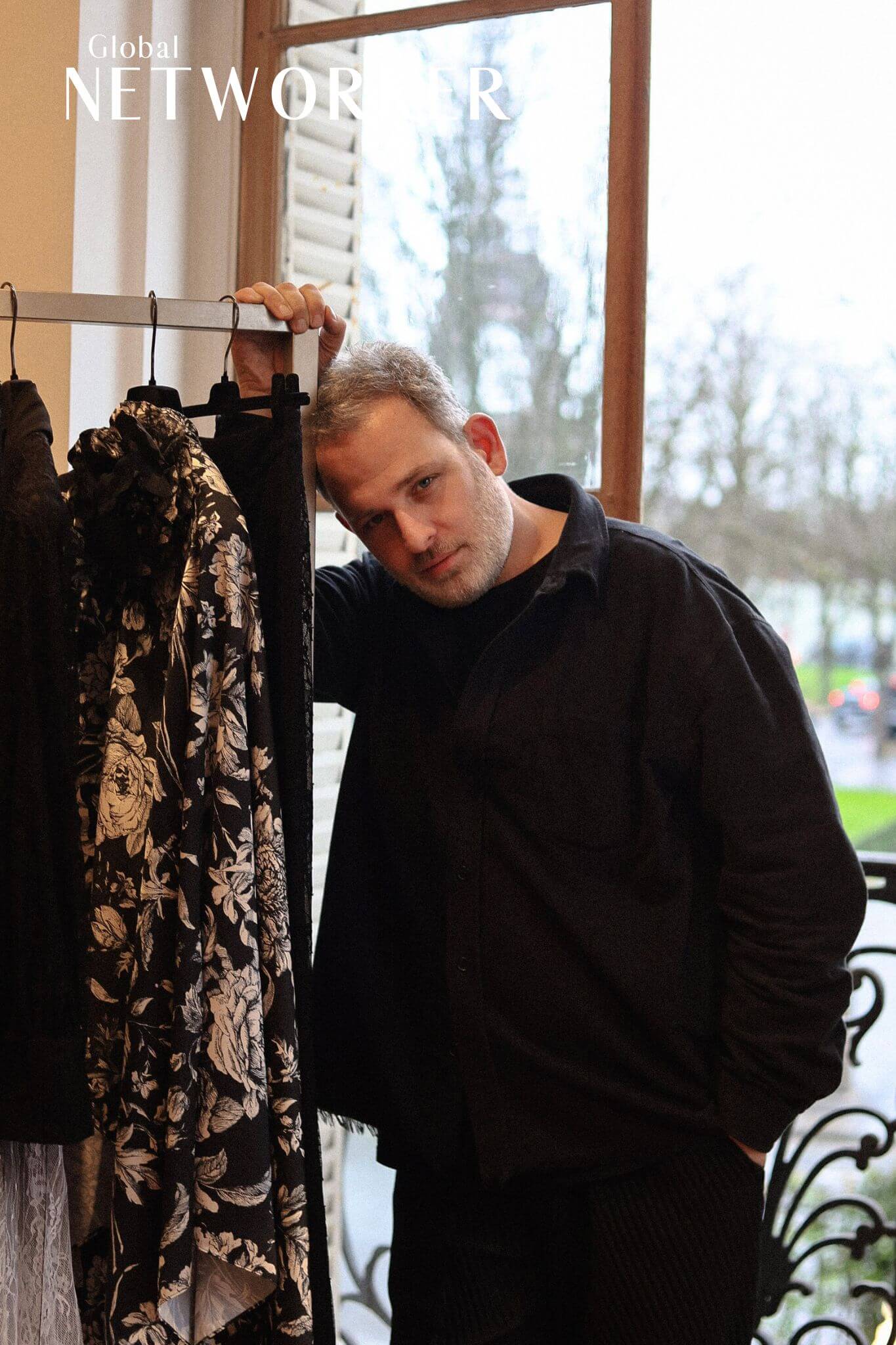
Kobi Halperin
Your eponymous ready-to-wear label is known for its European sensibility and crafted artisan details. How do you strike a balance between timelessness and current trends in your designs?
As a designer, I refuse to focus on trends. I view fashion as a language rather than a fleeting statement. My whole focus is to design clothes that make women feel beautiful and confident, respecting the uniqueness of each woman’s body rather than giving in to passing trends.
What motivated you to launch your own label — Kobi Halperin — in 2015, and how has your brand evolved since its inception? Could you share the key philosophy that underpins your brand?
When I worked for other brands, I fell in love with my customers. When it was time to move on, I had such deep connections with the customers I felt I needed to continue the relationship with them, so I started my own brand.
I’m proud of Kobi Halperin because it’s timeless, and in many cases, seasonless. I think that my designs make women feel that somebody honestly cares about them. I don’t believe in categorizing women for age or body type. When I’m in the stores and I see my customers I am always impressed and inspired to see the diversity. My customer has a taste level and I love the fact that she’s connecting to the details and the workmanship, I think that’s what’s connecting all of us.
I try to revive the memories of what my grandmother embodied by using elements of history- pieces of embroidery, lace, and embellishments, and bring them back in a contemporary way. I think everything that we’re doing today is better than in the past, but when it comes to fashion, when it comes to making clothes, I think we lost the craftsmanship. So this is where I’m humbly working hard to try to bring this back.
As a brand, we started in similar ways, and I’m proud to say that today Kobi Halperin is in so many points of distribution in America. Right now we’re focusing on growing internationally and we just launched swimwear. My hope and my motivation are to be in every part of a woman’s life from shoes and accessories to perfume and even Menswear, the opportunities are endless. This is what motivates me to grow.
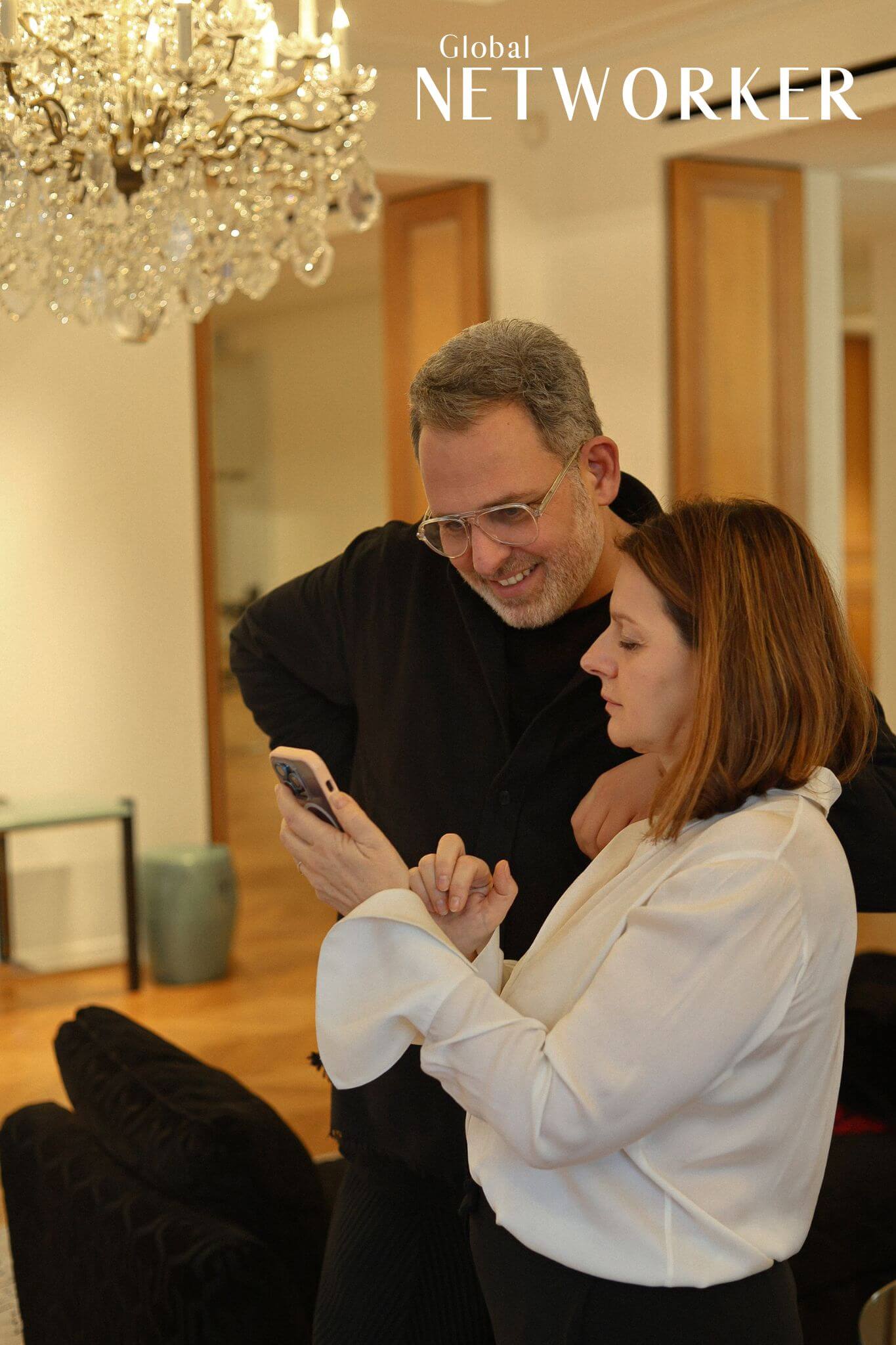
Kobi Halperin and Isabelle KONIKOFF
And another story of success. You guided the Ungaro’s Fall 2024 Collection, which was presented during Paris Fashion Week recently. The “Spanish Rose” collection was immediately recognized as a fashion masterpiece. In working with Ungaro, are there specific aspects of the brand’s history or design elements that particularly resonate with you, influencing the collaborative process?
I decided to design for Ungaro because I believed in what Mr. Ungaro started back in 1965. When he started the collection of Emanuel Ungaro what was in fashion was not that different from today. It was Dior and… yes it was Balenciaga. It was very proper, very ladylike and he brought this gypsy, super feminine, French look onto the runway, which I love because he celebrated women. This is where I believe as a designer, I truly connected to the brand.
For me to design Ungaro means to connect to my French influences, to connect to Europe, and to keep creating beautiful, feminine, elegant, timeless clothes that allow women to feel good about themselves and celebrate who they are.
We heard that you are deeply committed to mentoring and developing the future of fashion. So how do you approach cultivating new talents?
Being connected to the new generation is very inspiring for me. It’s always fascinating to see how different the new generation is, their point of view, and what’s inspiring them. I think it’s helping me to stay current and also to keep inspiring myself.
When you give to somebody you get so much back in return. So the starting point is about being able to help and being able to support these young minds. I’m committed to the school that I graduated from in Israel, Shenkar and I am also working with students from all over the world. I was involved with Marangoni in Paris, SCAD in Savannah, and also, of course, FIT in New York. To me, working with students from all over the world gives me so much joy. As a father of two daughters, helping the next generation of fashion designers makes me feel excited about the future.
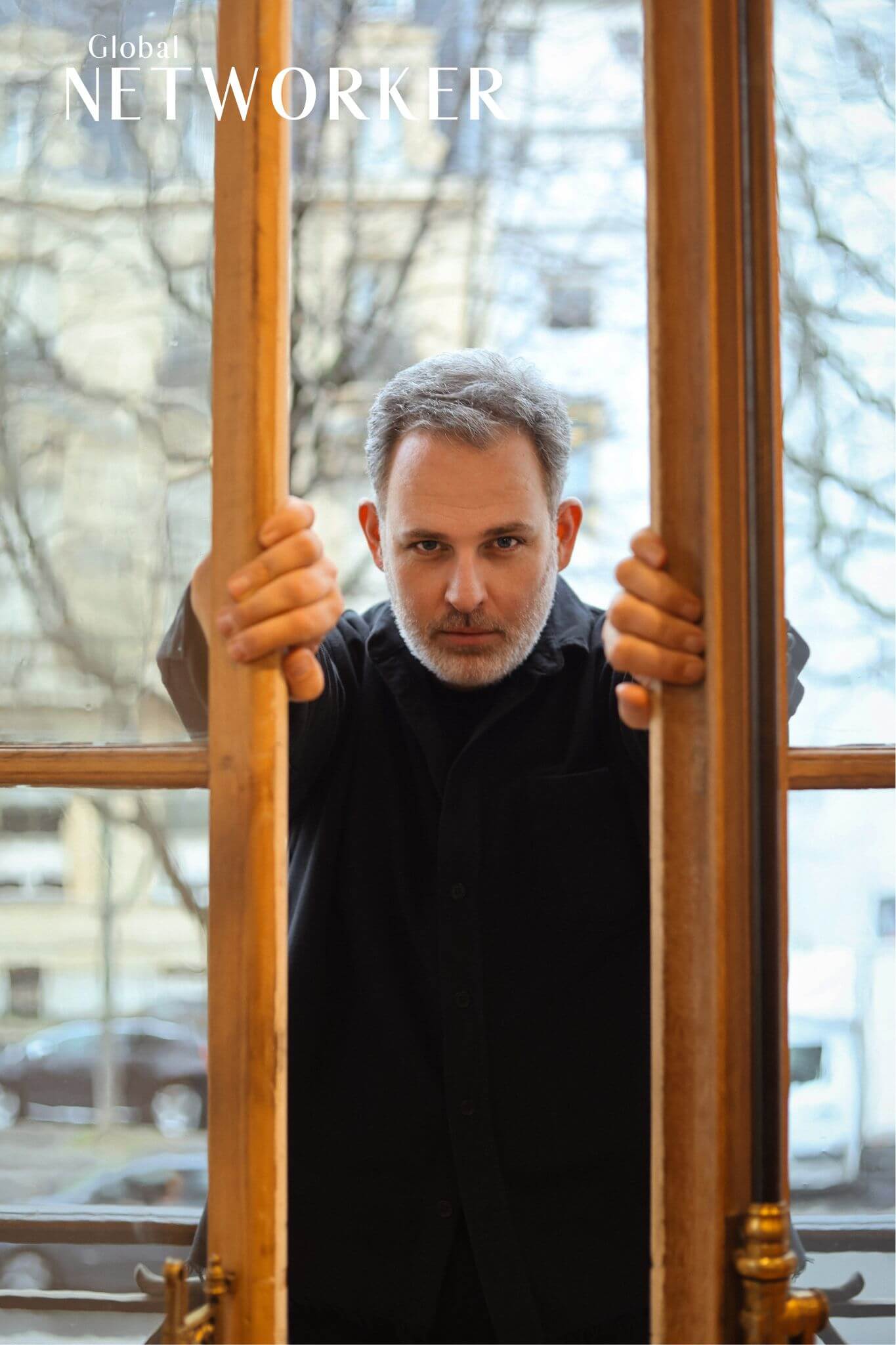
Kobi Halperin
What advice do you often find yourself giving to aspiring fashion designers, and how important is mentorship in the competitive fashion industry?
I think fashion as an industry has become very, very challenging. So my first advice is if you want to become a fashion designer, you need to really love it and be committed to doing it. Our ego cannot lead us. You need to work hard and create something that you can specialize in. Fashion should be your passion and there is nothing else that you would want to do. Also, you need to know how to work as a team. You need to know how to understand who is your ccustomer and to stay connected to them. That’s the most important thing
Your role as a role model to your daughters, Mika and Gali, is evident. How has being a father influenced your perspective on design and the fashion world?
Regarding my daughters, of course, I’m proud of them the most. They are my best creativity, and I don’t think I will be able to top that. My daughters remind me every day to be kind and to be sensitive to my customers needs. Looking at these two beautiful young women reminds me how sensitive I should be and how respectful I should be. And I think when that’s your starting point, you really can design the right product. And it’s making every customer that buys my clothes, I hope, feel this sensitivity, feel the love, the love that I have for my two daughters.
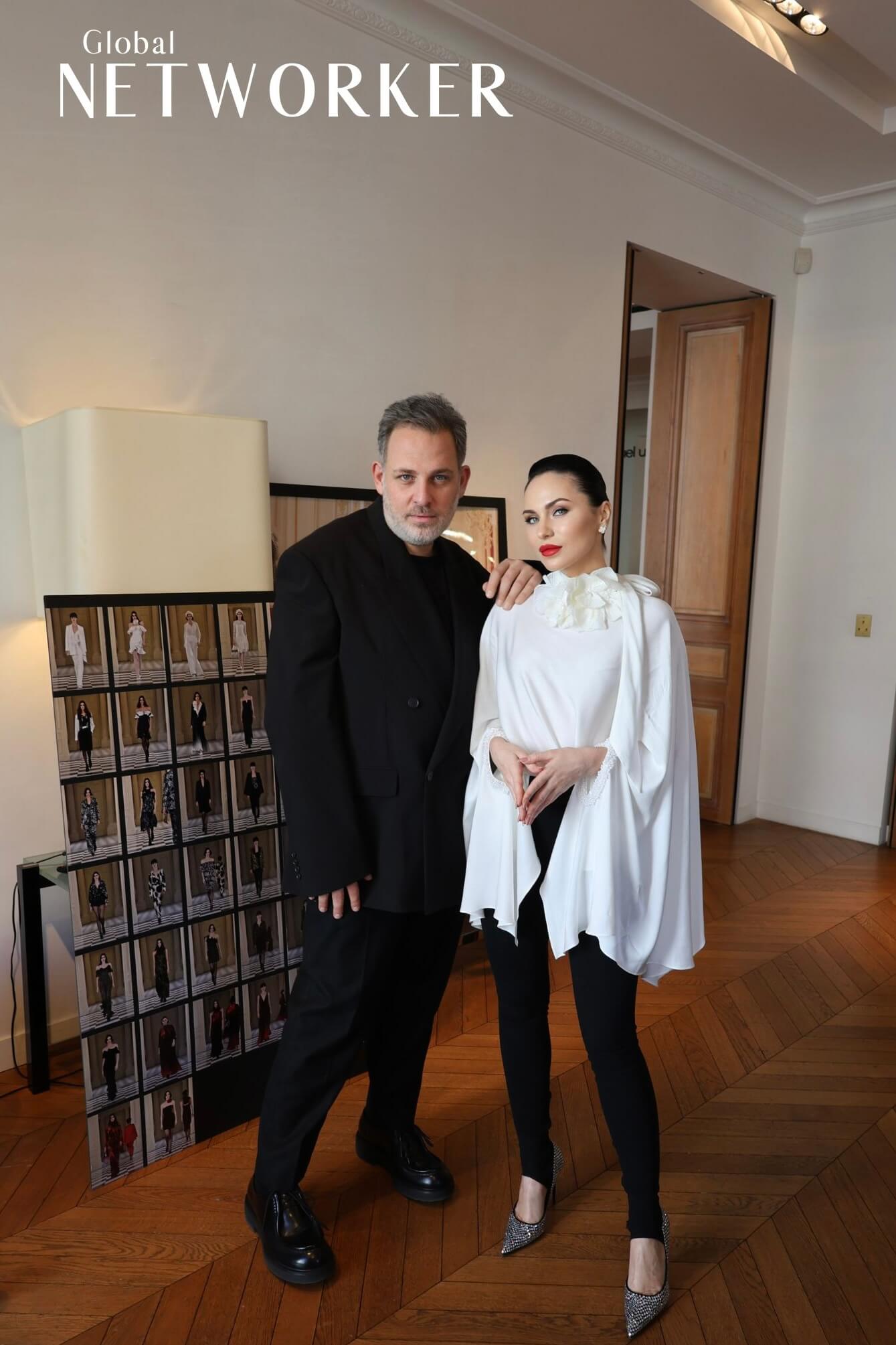
Kobi Halperin and Marina Slobodyanik
With your brand gaining global recognition, could you discuss the challenges and triumphs you’ve experienced in building a dynamic brand with a distinct point of view, and what aspirations do you have for the future of Kobi Halperin?
The future of the Kobi Halperin is about being able to stay true to who I am as a designer, stay true to the formula that I created, which means something that makes you feel connected, something that makes you feel part of the home, something that gives you a nostalgic feeling. It’s about continuing to deliver exceptional value to my customers.
I would love to continue to many other categories and create a lifestyle brand. My vision includes telling the brand’s story through Kobi Halperin home, envisioning a stunning store and space where people can immerse themselves fully in the brand experience.

